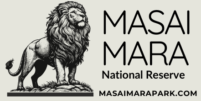Kampi ya Mungu, also known as “God’s Camp,” is one of the most serene and spacious private campsites in the Mara Triangle, designed specifically for professional tour operators. Situated on the western side of the Mara Triangle, it offers a peaceful retreat amidst the wild, with an abundance of wildlife surrounding the area.
The name itself, “God’s Camp,” captures the awe-inspiring beauty and tranquility of the location, making it a sacred spot for those who seek a connection with nature. Located just south of the Ngiro-Are road and 8 kilometers from the 50km main junction, the campsite provides easy access to the rest of the Mara.
How to Get to Kampi ya Mungu Campsite
Kampi ya Mungu is located on the western side of the Mara Triangle, making it one of the more remote campsites within this section of the Maasai Mara ecosystem. To reach the campsite, follow these steps:
- Via Road:
- From Nairobi: Take the Narok-Mara road, heading towards the Oloololo Gate, the primary entry point into the Mara Triangle. The drive takes around 5-6 hours depending on road conditions.
- After entering through Oloololo Gate, head south following Ngiro-Are Road for about 8 kilometers. The road leading to the campsite is relatively straightforward but might require a 4WD vehicle, especially during the rainy season.
- Landmarks: The campsite is located about 8 kilometers from the 50 km main junction (mile marker) along Ngiro-Are Road.
- Via Air:
- The nearest airstrip to Kampi ya Mungu is the Kichwa Tembo Airstrip or Mara Serena Airstrip, which are serviced by flights from Nairobi’s Wilson Airport. The flight duration is about 1 hour.
- From either airstrip, arrange for a transfer through your tour operator or lodge. It’s typically a 30-45 minute drive from these airstrips to the campsite, depending on road conditions.
- 4WD Vehicle Recommended:
- Whether arriving by road or air, it is highly recommended to use a 4WD vehicle to navigate the Mara Triangle’s rugged terrain, particularly during the wet season when roads can become muddy and difficult to traverse.
The route to Kampi ya Mungu offers scenic views of the surrounding landscapes and wildlife, so be prepared for a few stops along the way to soak in the beauty of the Mara Triangle.
Pricing:
- Adults:
- East Africa Resident: KSH 1,000
- East Africa Citizen: KSH 2,000
- Non-Residents: USD 40
- Children:
- East Africa Resident: KSH 200
- East Africa Citizen: KSH 1,000
- Non-Residents: USD 20
- Students:
- East Africa Resident: KSH 200
- East Africa Citizen: KSH 1,000
- Non-Residents: USD 20
- Campsite Type: Private
You can book on MaraBookings.co.ke website here
Reviews of Kampi ya Mungu Campsite
Pros:
- Secluded Location: The campsite’s remote setting allows for a peaceful, undisturbed experience, with ample wildlife sightings, including elephants, buffalo, and occasionally predators.
- Spacious Campsite: With a capacity for 40 campers, the campsite offers plenty of room for large groups, making it ideal for professional tour operators.
- Serene Environment: Many visitors praise the calm and cool atmosphere, perfect for unwinding after a long day of game drives.
- Wildlife Encounters: Being in the heart of the Mara, you are likely to have close wildlife encounters, making the experience feel raw and unfiltered.
Cons:
- Limited Availability: Being exclusive to professional tour operators, the campsite is not available to general campers, limiting access.
- Basic Amenities: While spacious and serene, the campsite offers limited facilities, so self-sufficiency is key.
- Distance from Main Attractions: The remote location means you may need to drive a bit further to access some of the Triangle’s key attractions.
Expert Insight:
Kampi ya Mungu is perfect for those seeking an authentic safari experience away from the more crowded areas of the Mara. Its expansive layout makes it ideal for professional operators with larger groups, and the surrounding wildlife creates memorable encounters. If you’re looking for a serene, nature-immersed campsite, this is the place. However, compared to other campsites like Ndovu or Kijito, Kampi ya Mungu is more geared toward organized, professional safaris rather than individual travelers or families.

